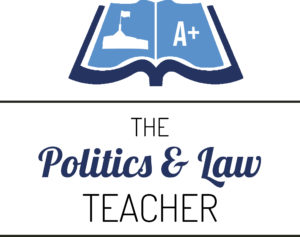The Australian political and legal system has recently experienced controversies concerning government integrity and its implications for executive accountability. The “Sports Rorts” and “Pork ‘n Ride” affairs and the RoboDebt scheme posed accountability problems that caught public attention sufficiently to make them potent contemporary political issues.
These cases highlighted the importance of transparency, accountability, and the crucial roles played by the Auditor-General, the Administrative Appeals Tribunal (AAT), Senate Estimates, and judicial review in upholding government integrity.
In doing so, these agents of executive accountability led to a minister resigning and helped shape public perceptions of the Morrison Government and the 46th Commonwealth Parliament. Integrity became a central issue in the May 2022 election and resulted in a transformational moment for the accountability of Parliament. Citizens’ increased political participation and representation translated into success for Teal independents and the Greens in particular. A new government was formed, but with a historically low primary vote which will keep it on its toes.
It seems like electors are expecting more from their parliaments and governments.
Accountability of executive power
The “Sports Rorts” affair
Sports Rorts, which unfolded in early 2020, revolved around allocating sports grants by the then-Minister for Sport, Bridget McKenzie. The integrity issue centred on allegations of political favouritism – revealed by the Auditor-General’s inquiry into the $100m Community Sports Infrastructure Program. The Auditor-General concluded that the minister made grants “inconsistent with the published guidelines (10)”. Minister McKenzie used her discretion to ignore Sports Australia’s advice about allocating funds and instead directed spending towards projects in marginal Coalition electorates. The affair raised concerns about the misuse of public funds and the abuse of the grant allocation process for political purposes.
Senate Estimates investigations brought public attention to the issue and provided a platform through which the opposition pressured the minister.
Following a government inquiry commissioned by Prime Minister Scott Morrison, Minister for Sport Bridget McKenzie resigned.
The “Pork ‘n Ride” affair
The Pork ‘n Ride affair was similar to the Sports Rorts scandal. It involved allegations of political favouritism and the biased allocation of funds to construct thirteen car parks. The scandal arose from a 2021 report by the Auditor-General that 77% of the car park sites selected were in Coalition electorates rather than in areas recommended by the Department of Infrastructure, Transport, Regional Development and Communications based on merit or need. The Auditor-General concluded “the merits of projects has not been appropriately assessed (26)”. The scandal damaged the Minister, Alan Tudge, but did not cause his resignation or dismissal.
Senate Estimates played a similar role as it did in the Sport Rorts affair. The minister survived the scandal by retaining the Prime Minister’s support.
The Auditor-General: Sports Rorts and Pork ‘n Ride
The Auditor-General, is an independent statutory officer reporting to the Parliament’s Joint Committee of Public Accounts and Audit. The Auditor-General is crucial in checking government activities and encouraging transparency and accountability by conducting regular reviews of government administration and spending.
In the Sports Rorts and Pork ‘n Ride affairs, the Auditor-General conducted investigations highlighting irregularities in the grant allocation process. Both reports revealed a lack of transparency in the process and misconduct by ministers who abused their power to favour certain electorates for political reasons. Reports to Parliament by the Auditor-General exposed ministers’ actual or potential malpractice and prompted further scrutiny by Senate Estimates committees and the media.
Ministers were either held to account and resigned (Bridget McKenzie) or were seriously embarrassed and would later resign from Parliament after losing office in May 2022 (Alan Tudge).
The Auditor-General’s reports significantly shaped public attitudes toward the incumbent Morrison Government and contributed to its fall in the May 2022 general election. Liberal MPs were held to account by electors for their failure to hold their government to a high standard of integrity. Teal independents – campaigning partly on integrity – swept six sitting Liberal MHRs from the House of Representatives.
Robo Debt Scheme
RoboDebt was a government scheme administered under the Social Services Act 1991. It started in 2016 and aimed to automate debt recovery of welfare overpayments. RoboDebt used algorithms and data-matching technology to compare Centrelink and Tax Office data. There was little human oversight to check the accuracy of alleged debts or deal with distressed welfare recipients. The scheme put the onus of proof on the debtor to prove their debts were incorrect.
RoboDebt faced criticism from the Administrative Appeals Tribunal (AAT) after it heard complaints. The AAT warned the Morrison Government about the potential illegality of the scheme. However, the Minister for Government Services, Stuart Robert, defended the scheme, which continued with minor changes.
Later, a class action legal case brought by welfare recipients led by Deanna Amato asked the Federal Court whether the Australian Government acted lawfully in raising her $2,754 overpayment debt by substituting her fortnightly income – which she had declared to Centrelink – with averaged income data from the Australian Tax Office.
The Federal Court found the algorithm’s annualised income averaging to calculate welfare debts illegal. The scheme stopped immediately. The illegality of the scheme meant the government had to repay over $720m to welfare recipients. The government also paid $1.2bn compensation to 400,000 welfare recipients harmed by the scheme.
The Administrative Appeals Tribunal and the Federal Court: RoboDebt
The Administrative Appeals Tribunal (AAT) and the Federal Court played crucial roles in addressing the unlawfulness of the RoboDebt scheme.
Welfare recipients who received incorrect debt notices could appeal their cases to the AAT, an independent body that reviews administrative decisions made by government agencies. The AAT provided individuals with an avenue for challenging the inaccuracies and unfairness of the scheme. It warned the government the RoboDebt scheme was potentially illegal. Had the government acted on the AAT’s warnings, it may have avoided the legal and political consequences of RoboDebt.
In Amato v the Commonwealth 2019, the Federal Court ruled that the government’s automated debt collection method was unlawful. The court found that calculating debts based on averaged income data breached the Social Services Act. The Act specified that welfare payments are varied according to income declared fortnightly, not calculated on an average annual basis. This landmark ruling underscored the importance of due process, fair treatment, and the rule of law.
After the May 2022 election, the new government promised to establish a Royal Commission into RoboDebt and used its mandate to do so. The Royal Commission heard from victims, public servants and ministers. Ex-minister Stuart Robert admitted to misleading the public about RoboDebt, arguing he needed to maintain cabinet solidarity about the scheme. The Royal Commissioner’s final report is due in July 2023. The RoboDebt saga lasted from 2016 to 2023, which makes it a contemporary political issue in 2023.
Senate Estimates: Rorts & RoboDebt
Senate Estimates is a crucial parliamentary process in which senators question government agencies regarding their operations and expenditure. It is a forum for holding the government accountable and scrutinising its actions.
The Senate Estimates hearings into Sports Rorts and Pork ‘n Ride affairs and RoboDebt allowed cross-party senators to question ministers and public officials about the controversies, seek clarifications, and demand transparency.
The opposition in particular was able to use the hearings to highlight the Auditor-General’s findings into the rorts affairs and the AAT’s and Federal Court’s RoboDebt rulings.
Hearings are public and receive high-profile media attention. Integrity issues received constant and focused attention over several years, shaping the electorate’s judgment of the 46th Parliament and its failure to hold the government to a high standard of integrity.
The success of the Teal independents in the 2022 election may herald a change in political participation and representation. Electors have grown tired of unrepresentative Parliaments being captured by major political parties, which go on to form governments that abuse executive power.
Integrity legislation
46th Parliament
Following the revelation of the rorts and RoboDebt abuses, the House of Representatives tried to improve integrity and accountability.
Legislation to create an independent federal anti-corruption commission – similar to those in the States – was widely seen as the necessary antidote to the political abuse of executive power. The New South Wales Independent Commission Against Corruption (ICAC) and the Western Australian Corruption and Crime Commission (CCC) provided working models.
In 2019, Greens leader Adam Bandt introduced his private member’s bill, the National Integrity Commission Bill. The bill was introduced and read for a first time on 9 September 2019. The motion to read the bill a second time was defeated by the Coalition majority. It was removed from the Notice Paper on 3 March 2020.
Helen Haines, the independent MHR for Indi (Vic), introduced a second private member’s bill called the Australian Federal Integrity Commission Bill in 2021. Her bill was introduced and read for the first time on 25 October 2021. The motion to read the bill a second time was again defeated by the government majority. The bill lapsed at the dissolution of the Commonwealth Parliament on 11 April 2022 before the May election.
The fate of both bills illustrates the fate of most private members’ bills, where governments often defeat them using their House majority. However, the bills also illustrate how individuals and minor parties influence law-making in Parliament.
Introducing the bills raised the integrity issue and increased pressure on the executive. The government’s defeat of both bills could be made to look like a defence of its political interest against the public good. Thus, Adam Bandt and Helen Haines’ failed bills helped shape public opinion and turn integrity into a political issue in the May 2022 election.
Finally, both bills provided examples of integrity legislation that would later influence the Albanese Government’s successful bill.
47th Parliament
Prior to the 2022 election the Labor Party campaigned on several issues, including integrity and accountability. When it won office, it had a mandate to create a federal anti-corruption commission.
The new government established a Joint Select Committee on 28 September 2022 to inquire into the National Anti-Corruption Commission Bill 2022, which was introduced into the House of Representatives the same day. The Joint Select Committee provided a forum for cross-party input and scrutiny of the bill. Helen Haines is on the committee, as is Greens’ senator David Shoebridge. Dr Haines is Deputy Chair of the Committee. The Committee reported on 10 November 2022.
The government bill passed both houses after debate about how allegations of corruption would be referred and whether its hearings would be public. It received Royal Assent on 12 December 2022.
The bill drew on Mr Bandt’s and Dr Haines’ private members’ bills, with the David Shoebridge and Helen Haines able to further influence the bill through their membership of the Joint Select Committee on National Anti-Corruption Commission Legislation.
The National Anti-Corruption Commission Act 2022 establishes the National Anti-Corruption Commission from 1 July 2023.

